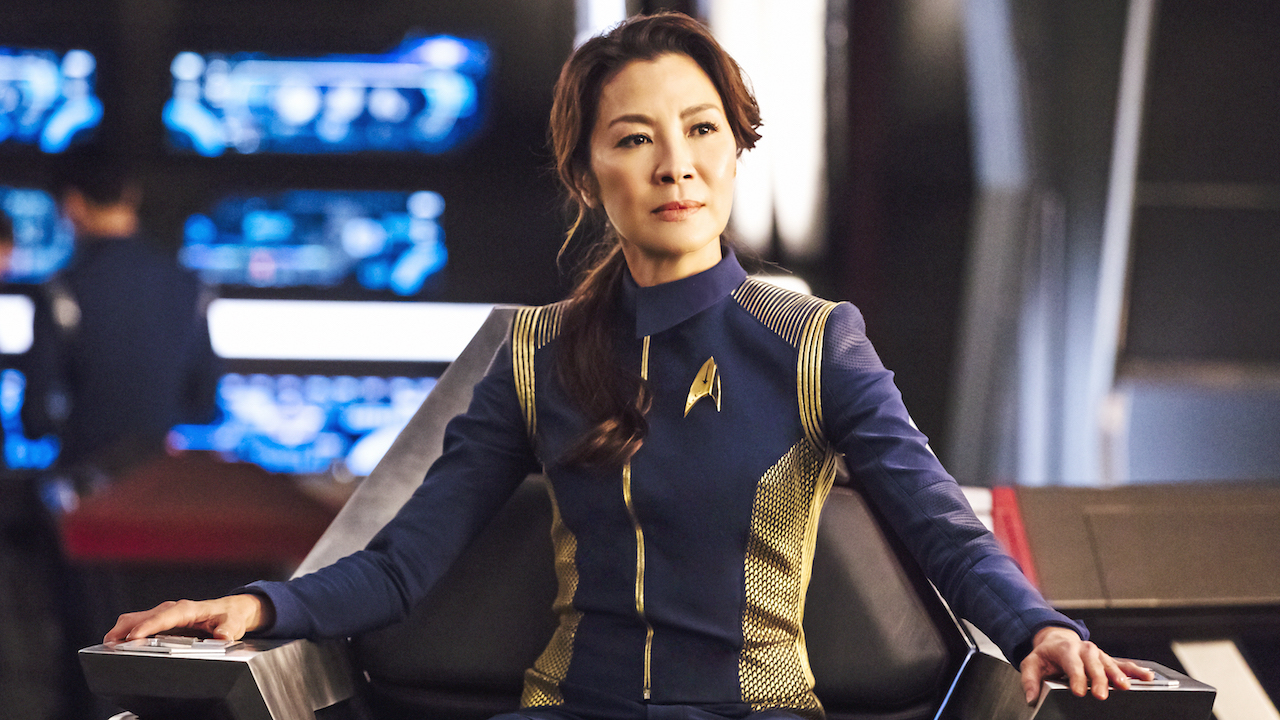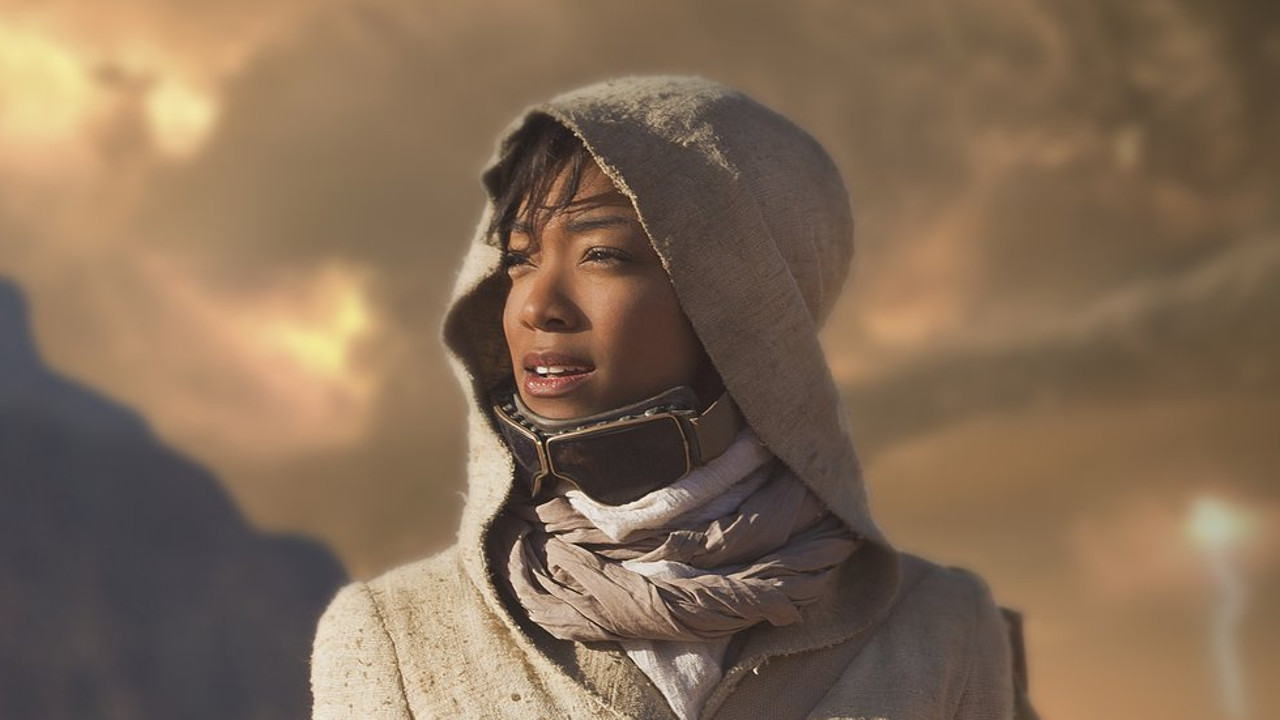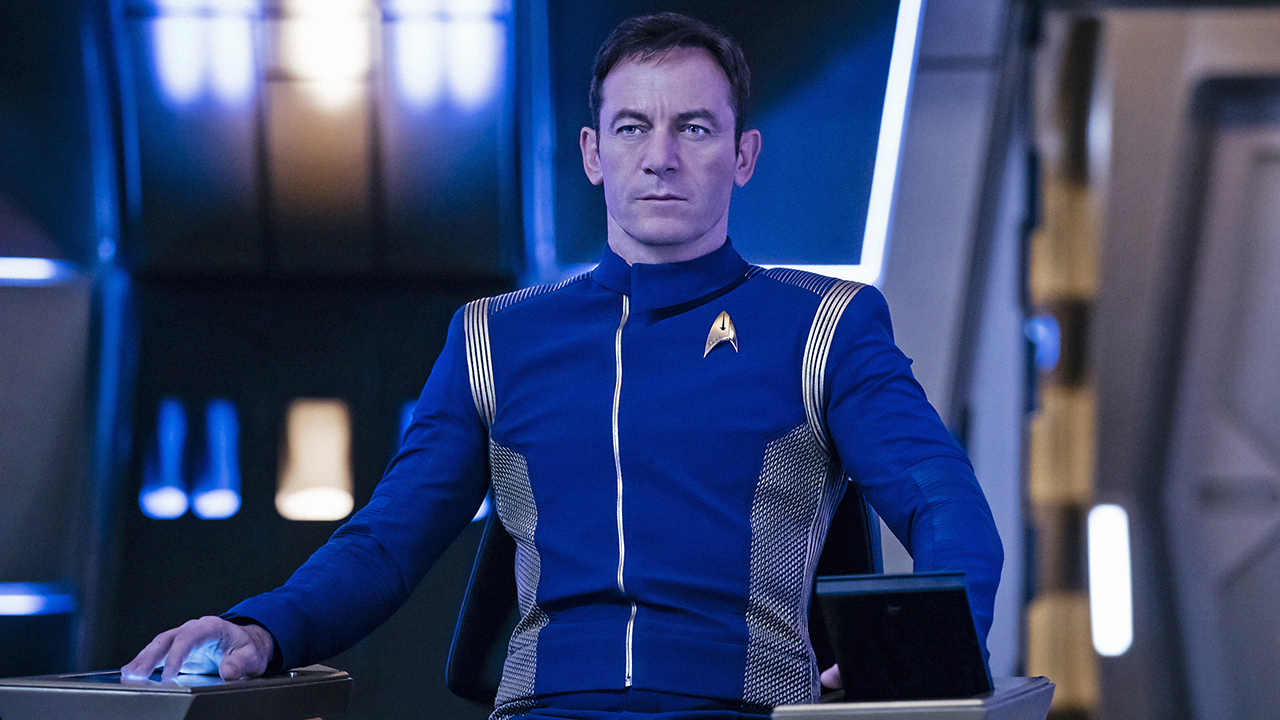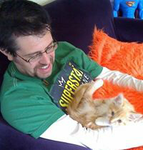Star Trek Discovery's slowburn start was a gamble that paid off
It might not have won fans over straight away but Discovery played the long game with twists and revelations

When it comes to genre TV, the phrase “It gets better” invariably has a whiff of desperation about it. The inference is that the show pretty much sucked to begin with, and that the faithful who stuck with it were rewarded with a couple of half-decent episodes just before the axe descended.
But in the case of Star Trek Discovery “It gets better” it’s a bona fide compliment. And fair comment. It’s also an acknowledgement that a slow-burn start to a series – while a hell of a gamble – can pay some extraordinary dividends down the line. Possibly the cleverest trick Discovery has pulled off – albeit unintentionally – is having taken its time to win people over. For some reason, by having fans grow to like it rather than embracing it immediately, its acclaim feels more deserved.
Because, let’s face it, Star Trek Discovery was hardly met with universal acclaim when it began. Especially not from fans and not even from critics.
You may think that Discovery’s premiere had a bit of a Last Jedi reception in terms of the difference of opinion between media pundits and ordinary viewers. To an extent that’s true. Check out the professional reviews on Rotten Tomatoes for the premier last September, then compare those with the user reviews on Metacritic, and the baseline story appears to be: critics loved it while fans hated it. A 100% Fresh rating on Rotten Tomatoes and 4.6/10 user score on Metacritic seems pretty conclusive in that respect, right?
However, scratch the surface and you get a slightly different story. Admittedly the fans were fuming on Metacritic with comments such as, “This is not Star Trek. It is a sci-fi that tries to imitate Star Trek made by people that are clueless about Star Trek,” (Wizzer), “This is total trash and not worth watching!” (afngary). The fan reception wasn’t much better on the Star Trek sub-Reddit: “I just want a Star Trek show about exploration. Is that too much to ask?” (u/JeffCraig).
But that 100% Rotten Tomatoes Fresh rating hides the real story as well, as Rotten’s aggregate system often does. Critics liked the Discovery premier, but few loved it. Many had reservations. There was a general feeling, perhaps based on a history of dodgy Trek premiers, that with this franchise, it always pays to be optimistic and concentrate on the good. After all, it took Next Generation two seasons before it really achieved its potential.

And it was a feeling of ‘potential’ that pervades those early critics’ reviews. “Discovery feels like a Star Trek show — at times one with the potential to be quite good,” said Uproxx. “It’s an awfully bold move… but I’m not sure that it works. We’re only one episode in, so there are of course ways this could eventually pay off,” said Vulture. “I could lean cynical, say, ‘Whatevs,’ and go back to watching The Search for Spock by myself. But I’m opting for optimism here,” said The Huffington Post. Perhaps, though, The Independent hit the nail on the head with that hoary old critics’ get-out clause, “Where Discovery goes from here is anyone’s guess.”
Weekly digests, tales from the communities you love, and more
Because one of the main issues with the two-part premiere was that it didn’t set up the series. As many reviewers pointed out at the time, The Klingon Hello and Battle at the Binary Stars felt like a movie-of-the-week; a weird, meandering prologue to the series proper, and that episode 3, Context is for Kings, felt like the pilot. Hell, we didn’t even get to see the star of the show – the USS Discovery – and its Captain, Lorca until episode 3. That’s just perverse!
And yet, just a few months later, people are talking about Star Trek Discovery in very excited terms. And that’s not just anecdotal evidence, although we’re sure you will have noticed that your social feeds have gradually becoming more and more full of, “#StarTrekDiscovery WTF?!? WOW!”-type messages. But Forbes ran a story at the end of January that proved the show is now officially getting talked about in big numbers: “According to Parrot Analytics – which tracks all sorts of interests, including legal and illegal streams as well as conversations on social media – Star Trek Discovery has more than 53 million people talking about it in the US. That beats The Walking Dead which has around 46m expressions. Netflix’s Stranger Things also has a staggering 33m of these within the US.”
You could argue that the reason Discovery is getting talked about is because everybody’s moaning about it (certainly that seems to be case with The Walking Dead at the moment) but even a cursory glance through Discovery-related Reddit headlines, or Discovery hashtags on Twitter and Facebook shows the real picture; fans are loving the twist and the pay-off.
Why the turnaround? Well, one reason seems obvious: the show got better. But it’s not quite as simple as that. It turns out that many of the twists and revelations that have been transfixing viewers since the USS Discovery vanished into a parallel universe midway through a Klingon war were being set up in those curiously off-kilter early episodes. In short, we got the pay-off from some exquisite forward plotting. Even better, a lot of the groundwork was not painfully sign-posted. Sure, many fans guess Ash Tyler’s true nature, but very few guessed what Lorca was truly up to, or that we hadn’t seen the last of Georgiou.
Sure, the two-part premiere was a little slow. It featured far too many pompous speeches in Klingon that sucked the pace and energy out of the story. It killed off its most interesting hero and villain. It didn’t feature the USS Discovery. It had loads of continuity problems with existing Trek lore. But as the series has progressed it’s become clear just how much important background those early episodes were generating. The twists we’ve embraced so passionately of late were only possible because of that meticulous set up.

You can argue that Discovery could have done so with more style and less clunkiness; that opening a series with 90 minutes of drama that set up an arc plot rather than an ongoing format is a dangerous game. And, yes, the recent pay-off doesn’t excuse all the show’s problems (there’s still an issue with the Klingons coming across as rather uncomfortable racial stereotypes, and the costumes are worryingly like a Winter Olympics team’s official tracksuits).
On the other hand, it’s refreshing to have a show that’s been brave enough not to be in an ungodly hurry to impress us. In an age when far too many new series wow us with barnstorming opening episodes that have the internet gushing, “NEXT BIG THING” before they fall into a slowly-deteriorating holding pattern that never quite matches the shock of the new until the finale (The Man in the High Castle, Sense8, 12 Monkeys, The OA) it’s great to have Star Trek Discovery reminding us that traditionally, you need to give a ‘Trek series time to mature.
The best things do indeed come to those fans who wait. And somehow, watching a show improve in this way makes sticking with it so much more satisfying.
If you're already looking forward to season 2, check out the questions it needs to answer with our Star Trek Discovery season 1 ending feature.

Dave is a TV and film journalist who specializes in the science fiction and fantasy genres. He's written books about film posters and post-apocalypses, alongside writing for SFX Magazine for many years.


